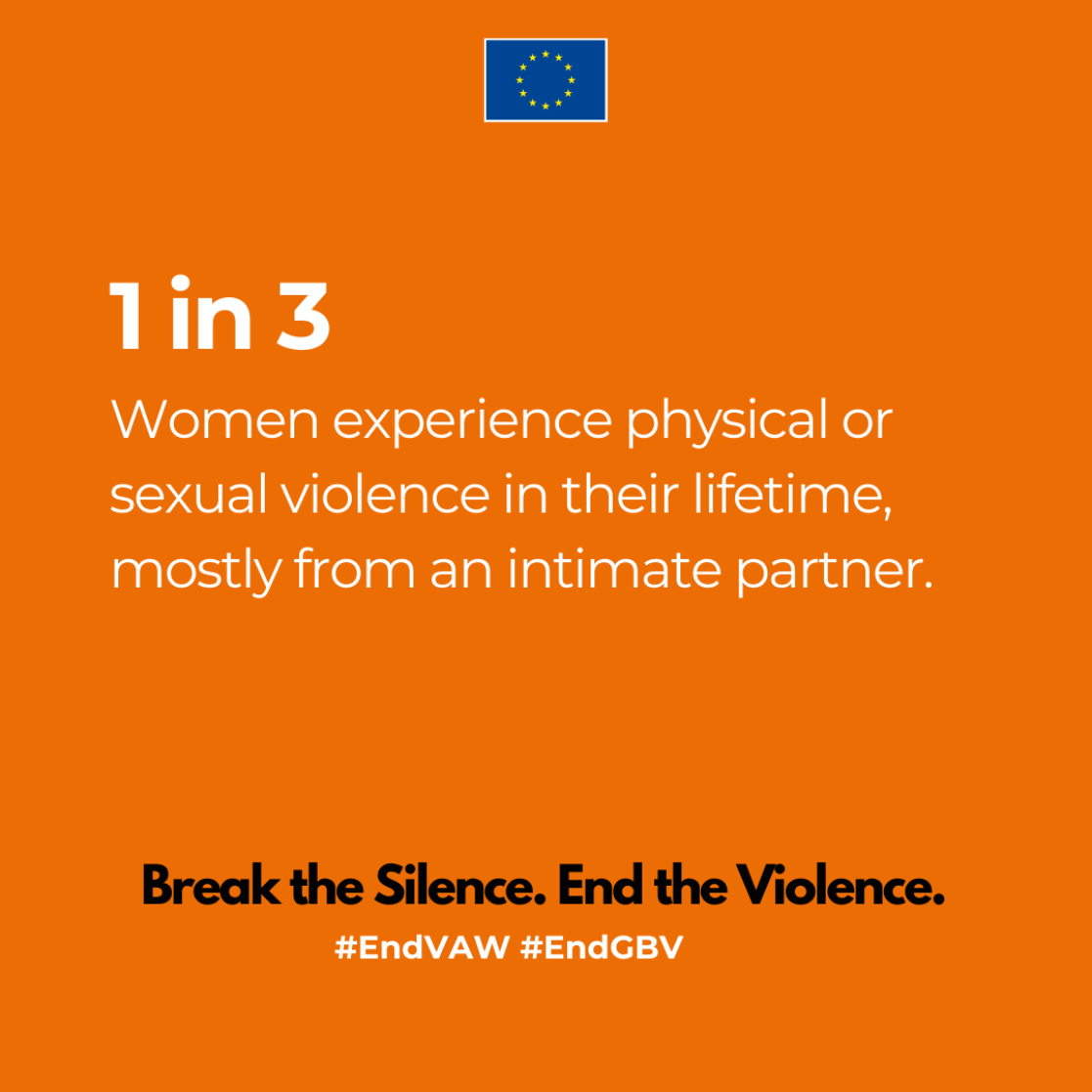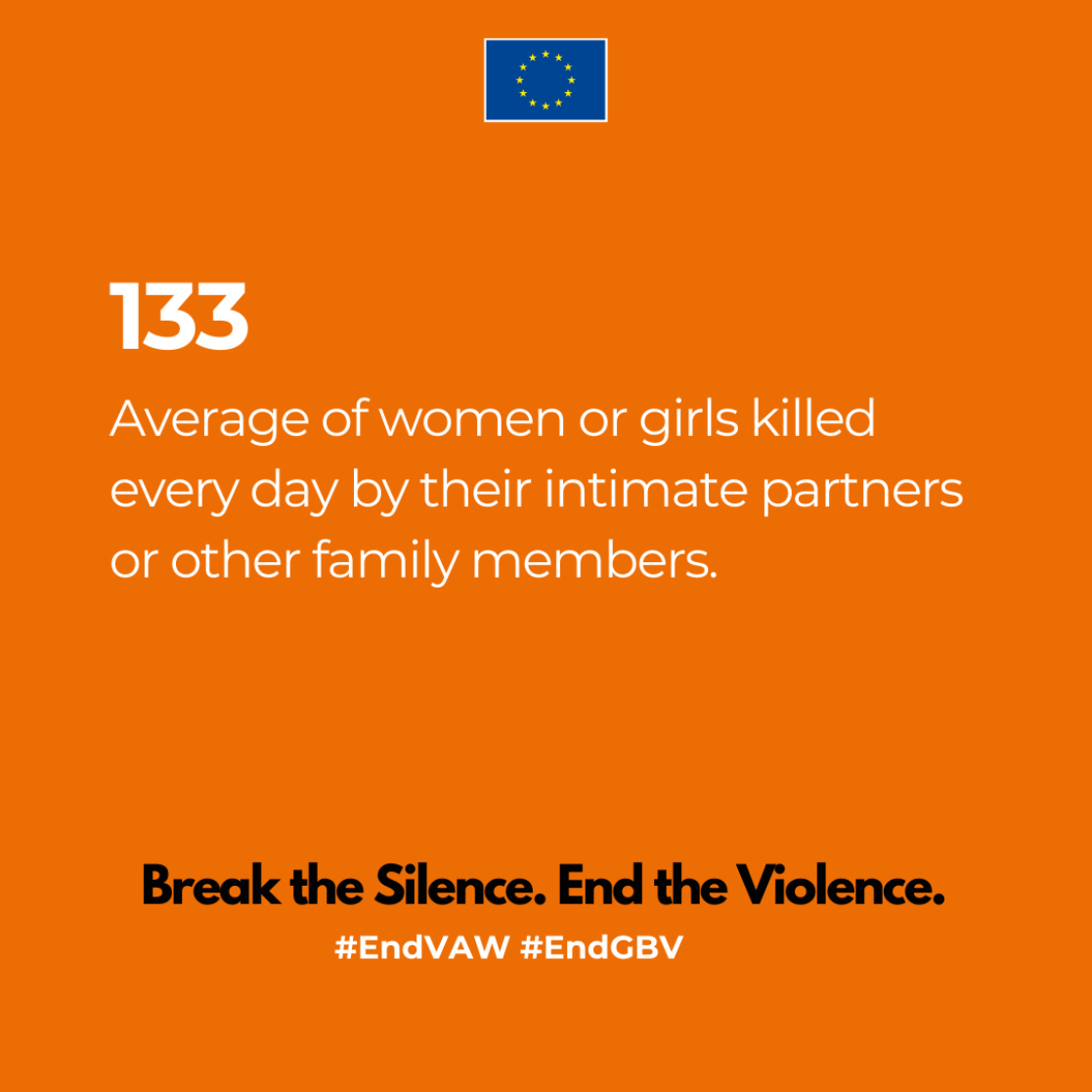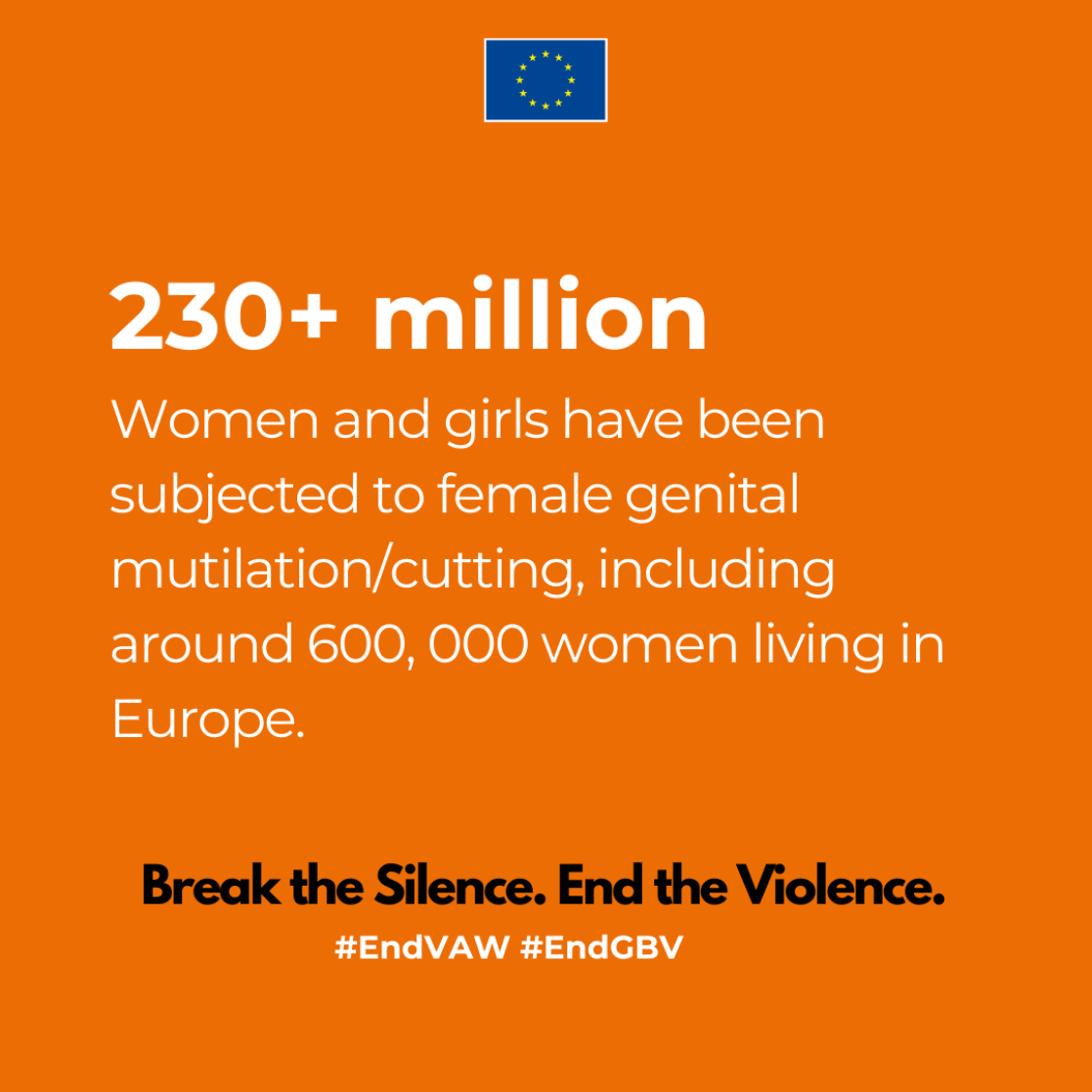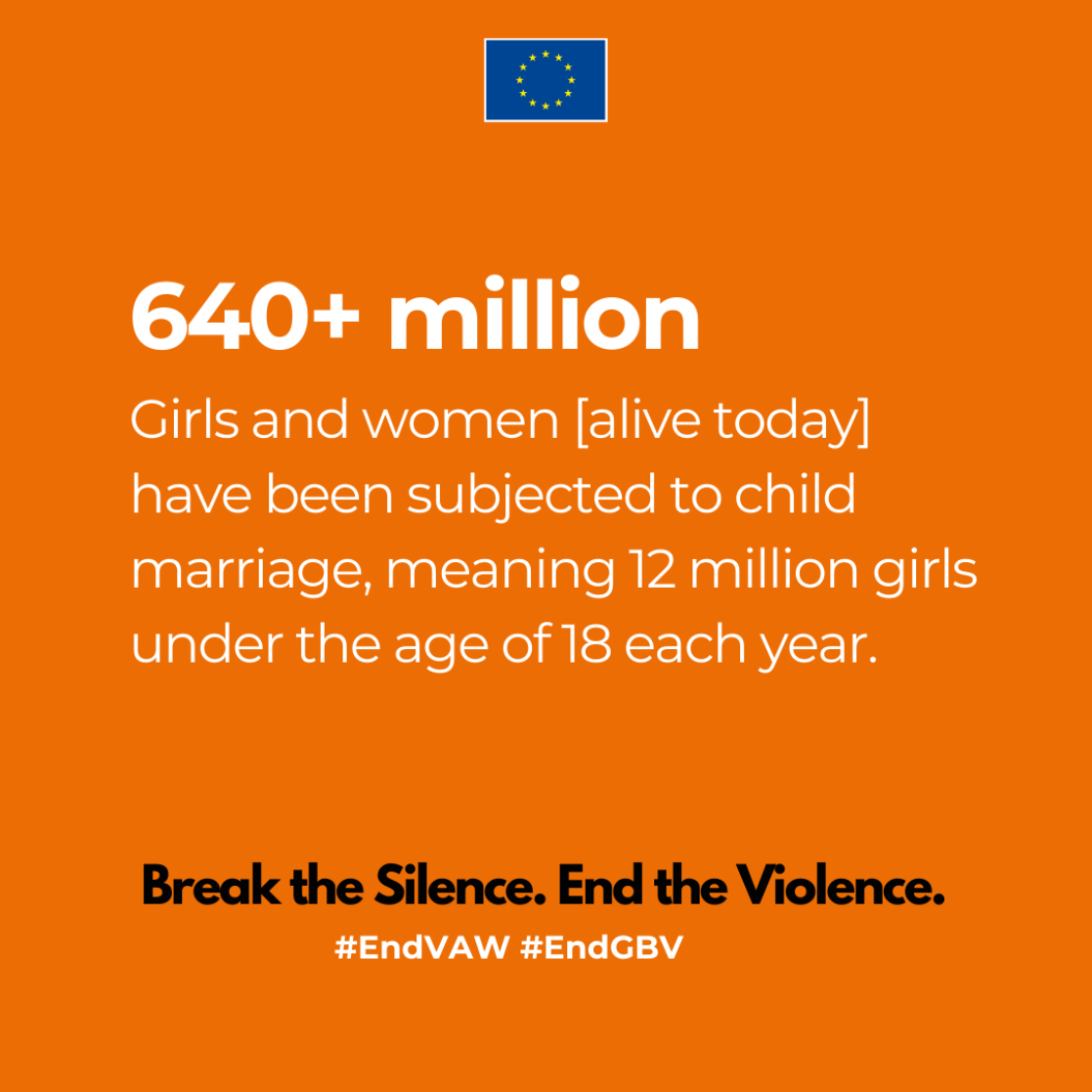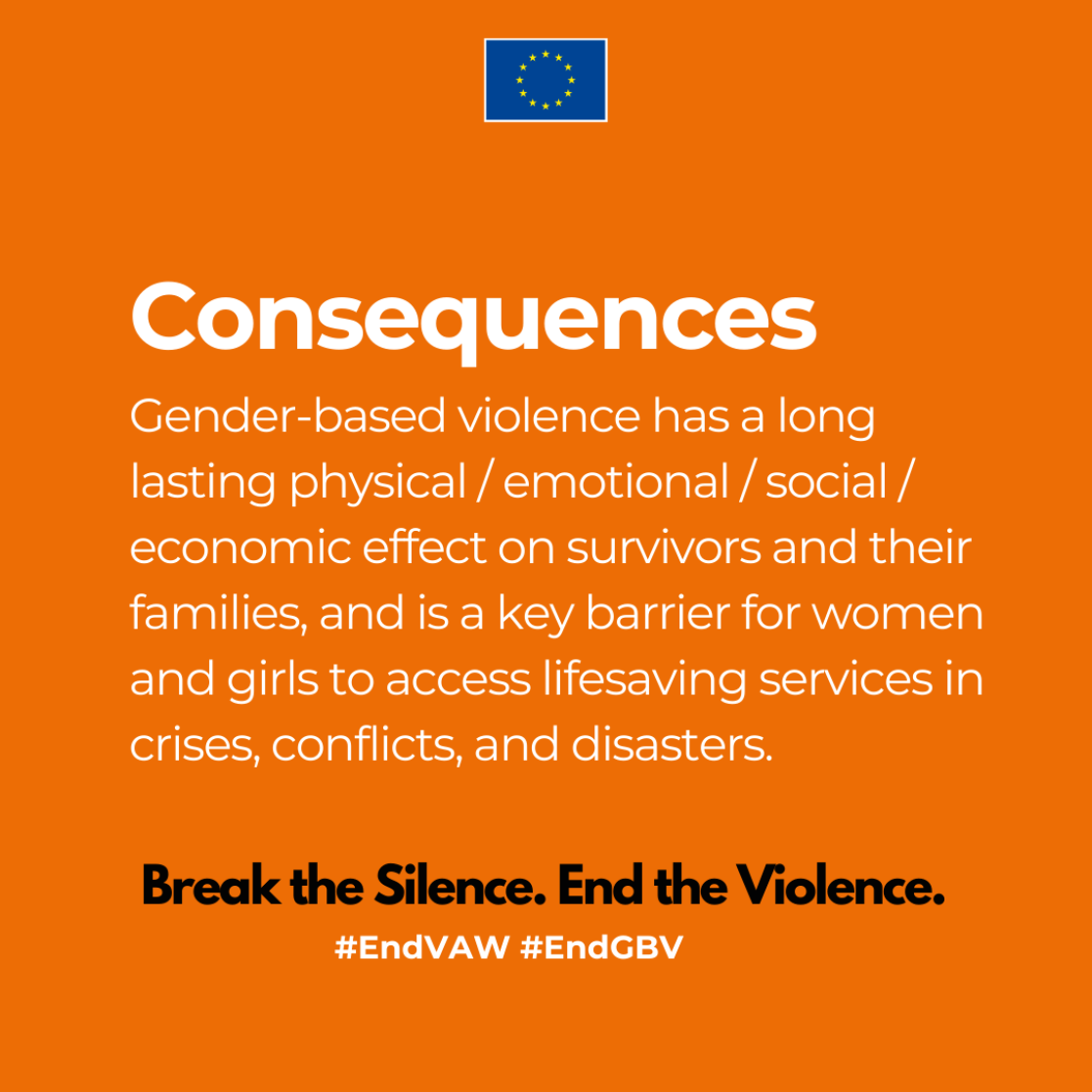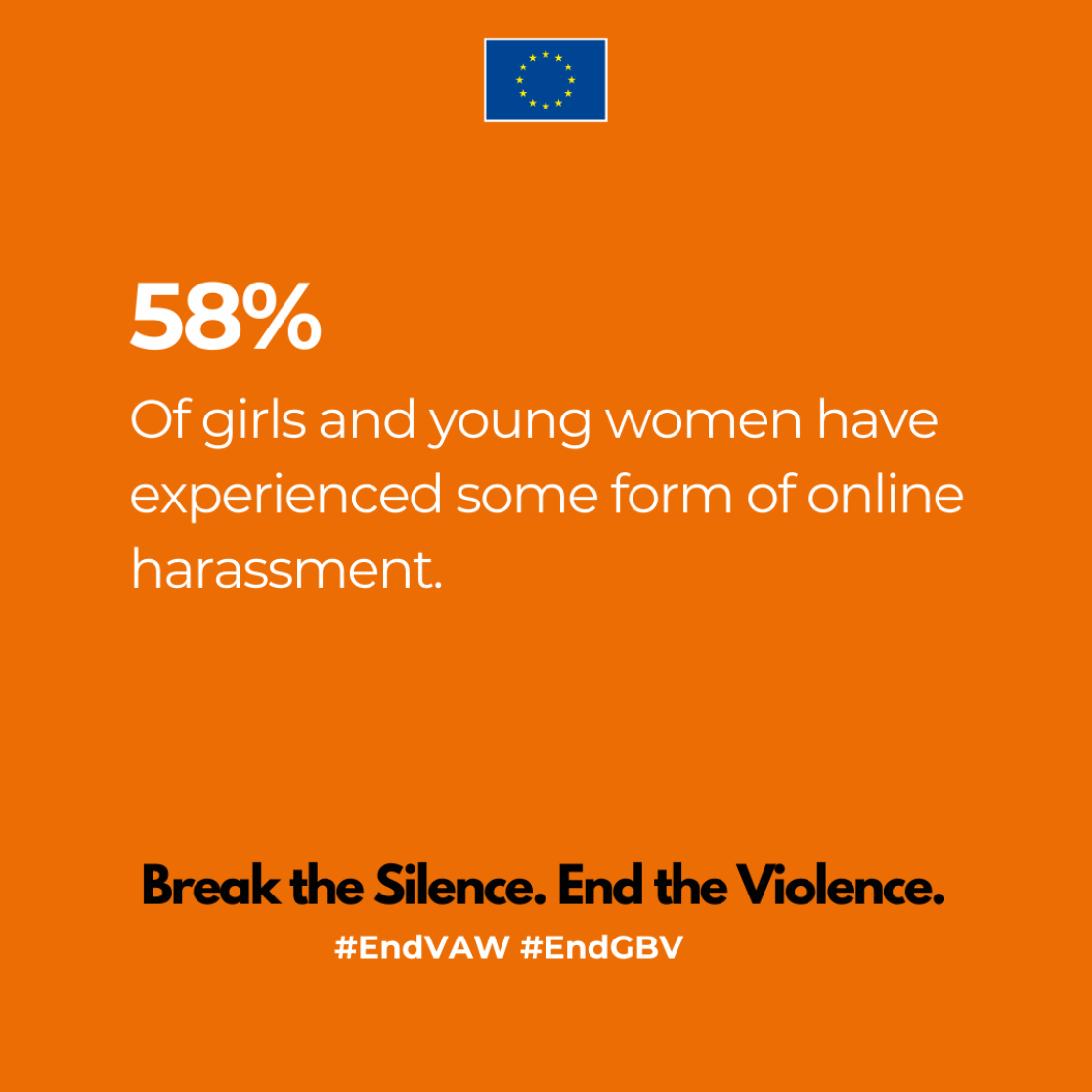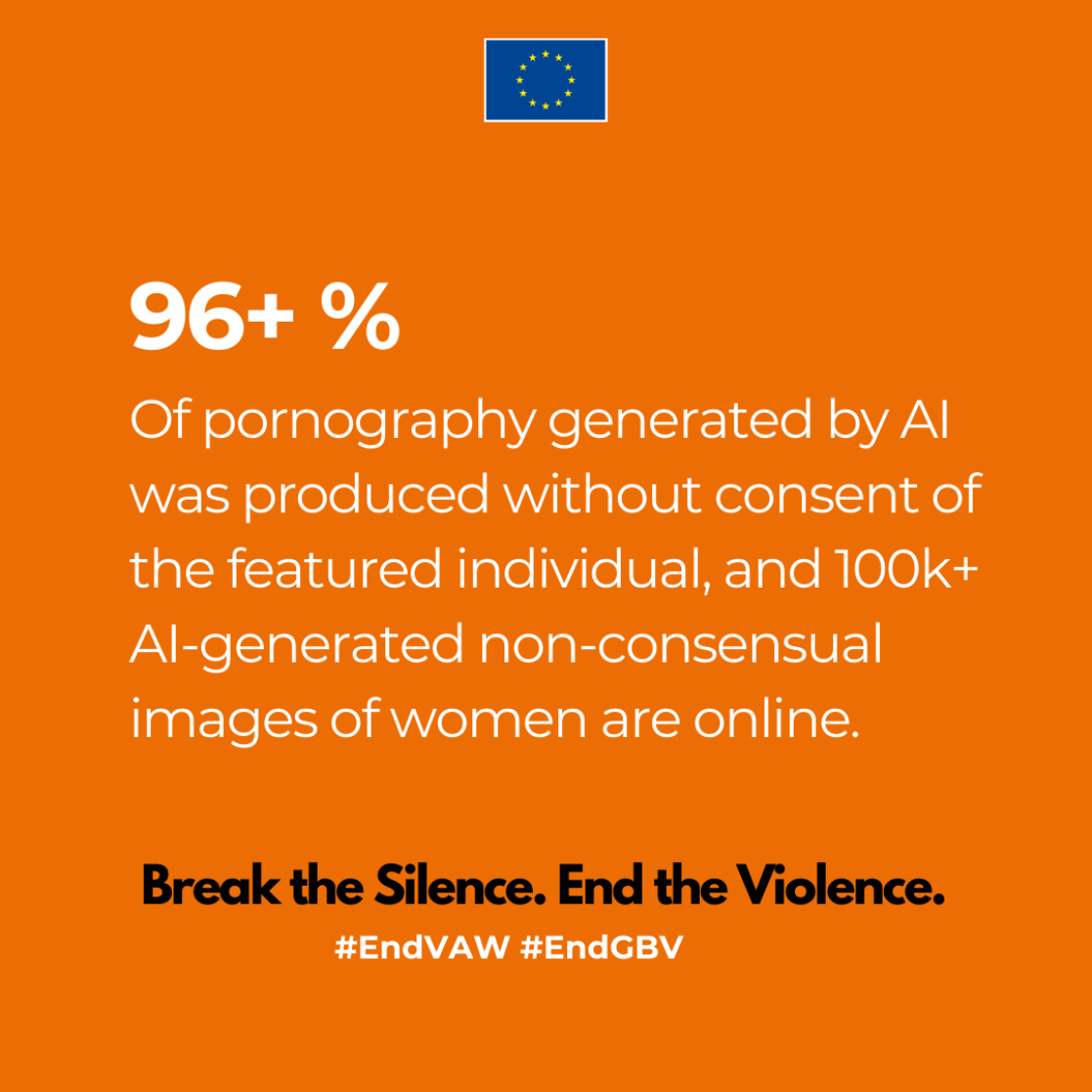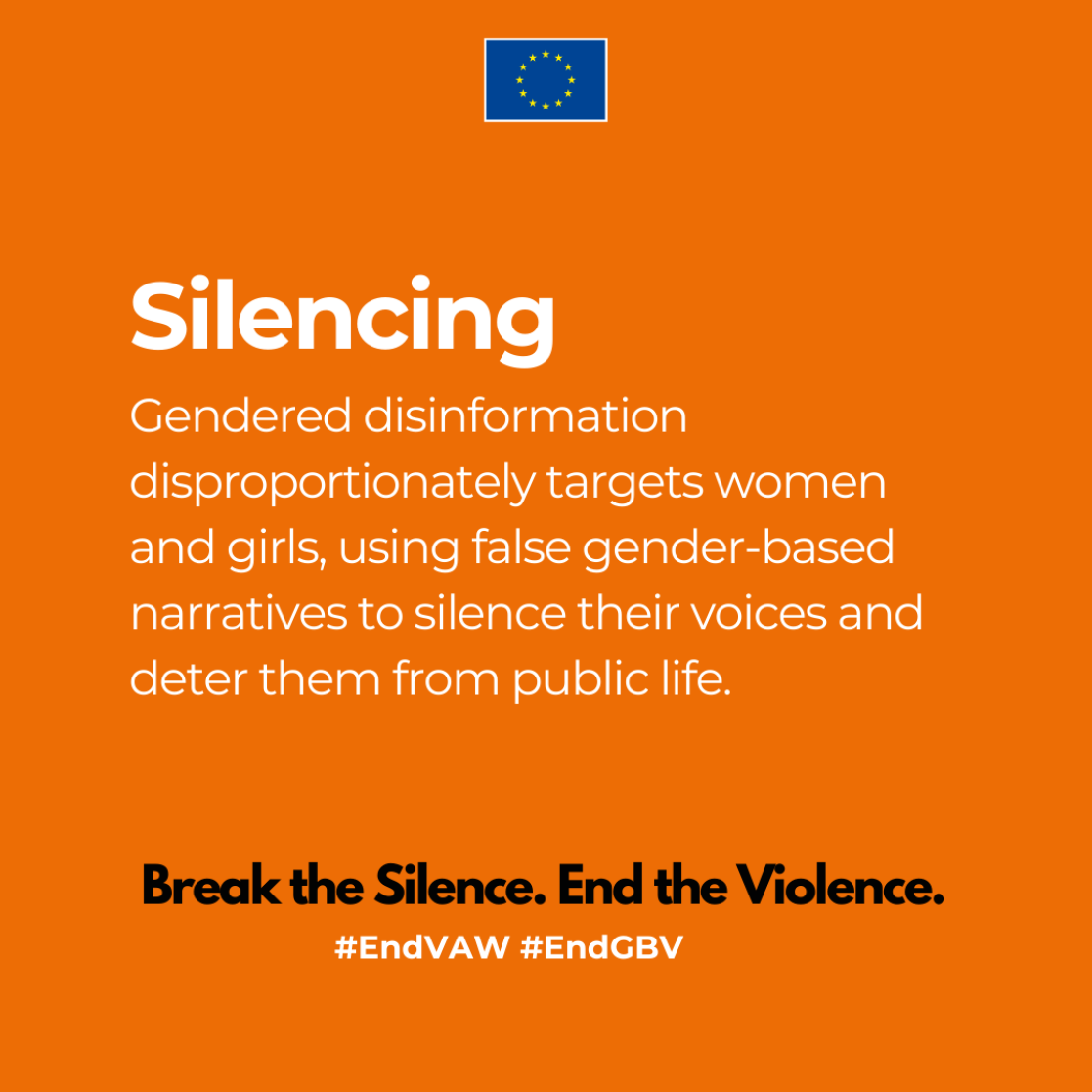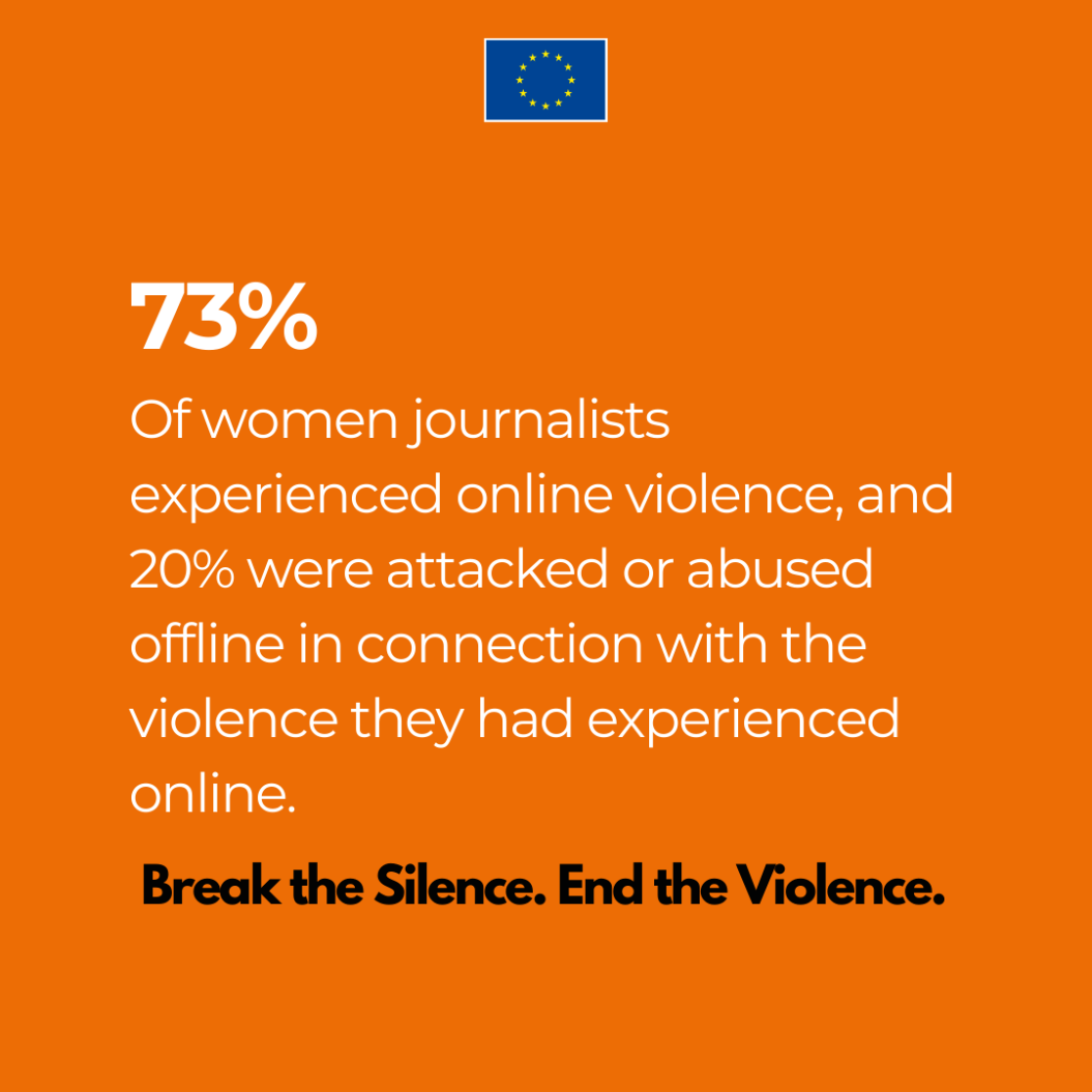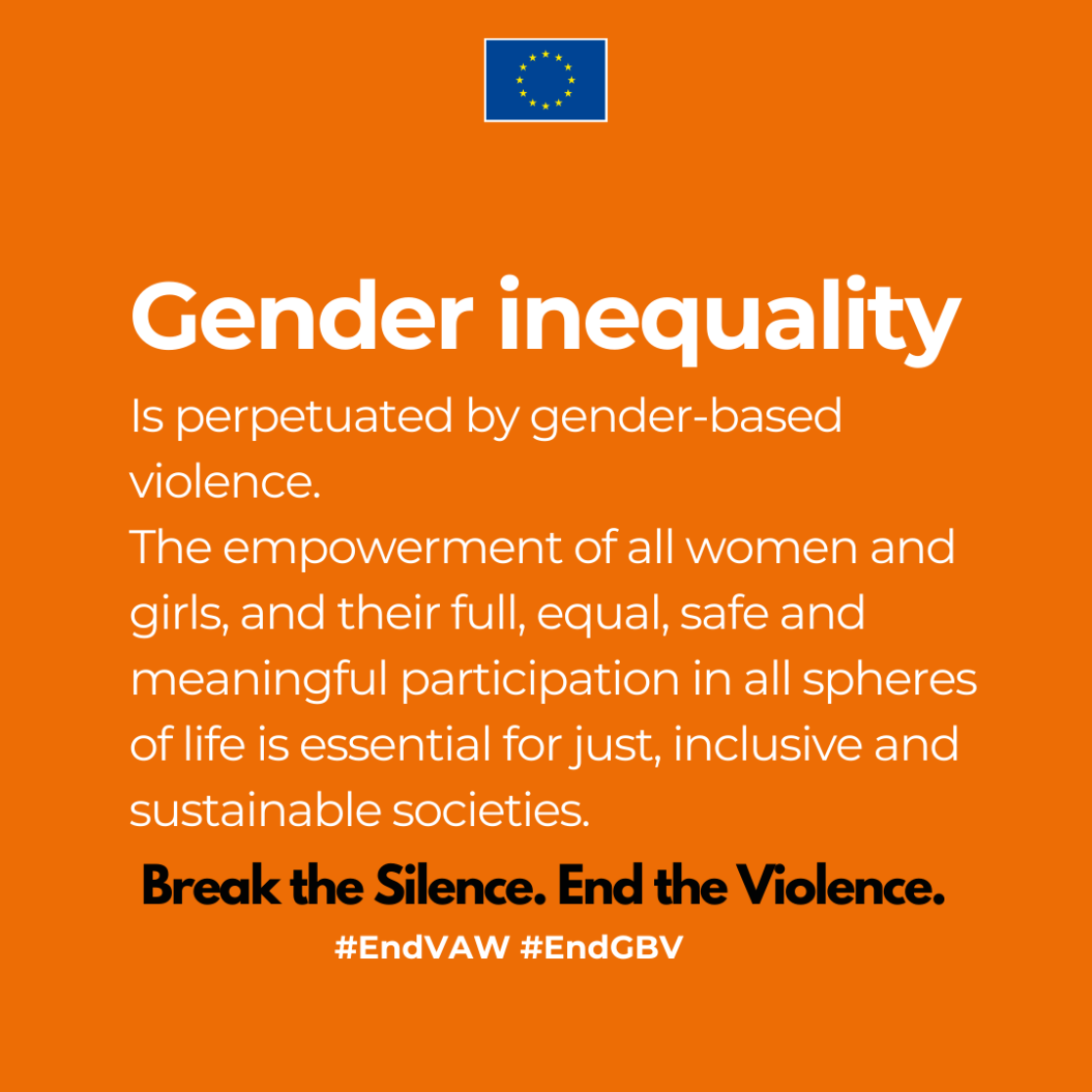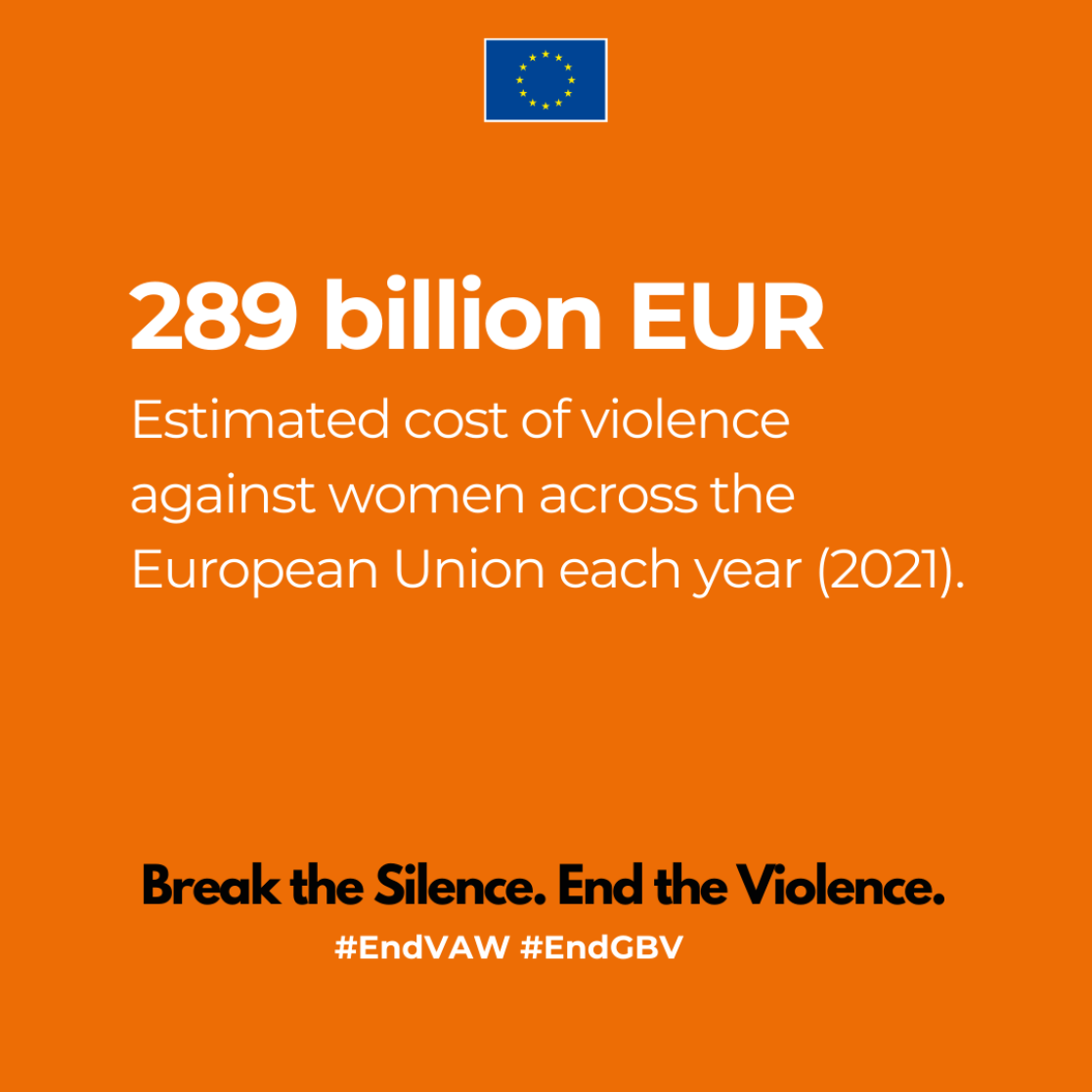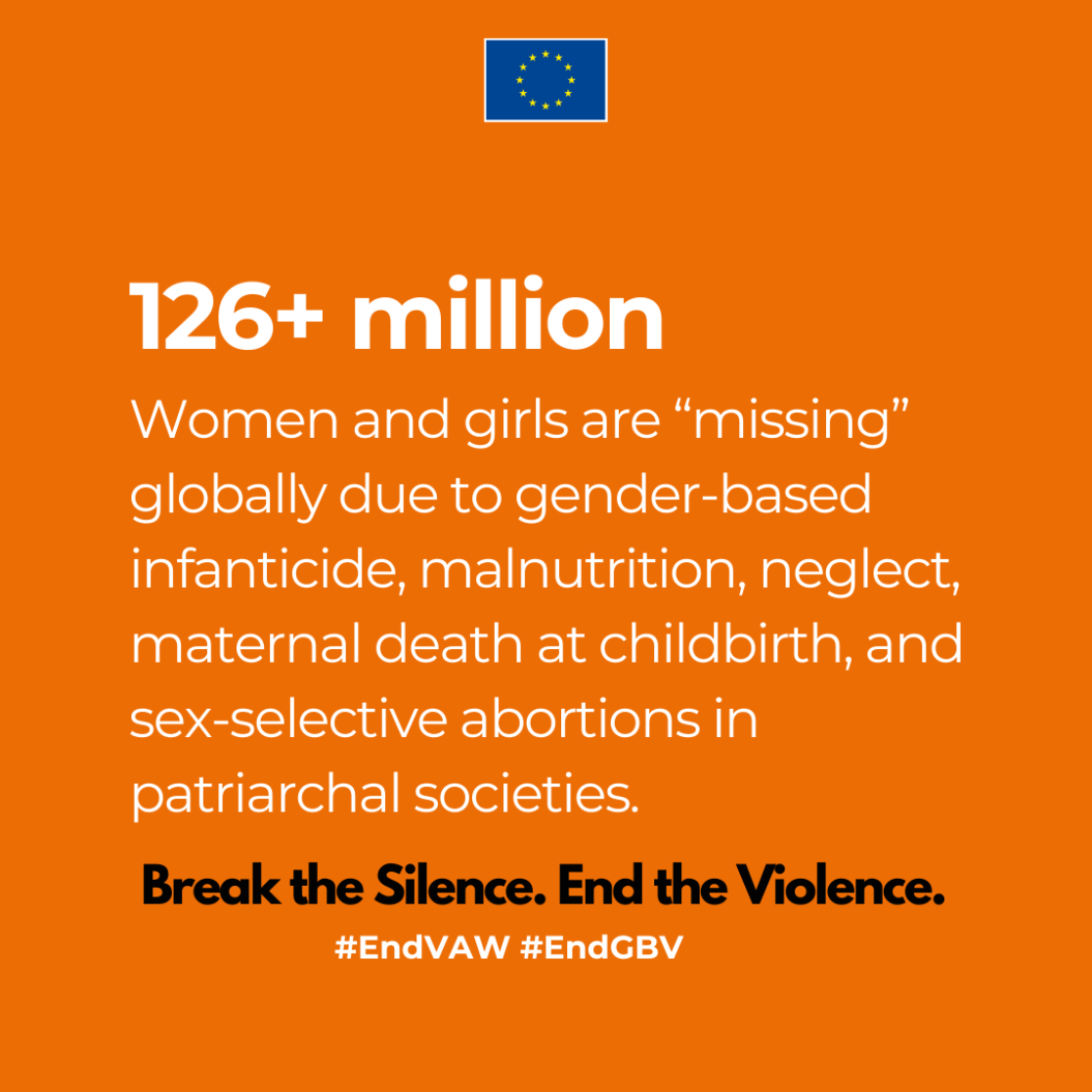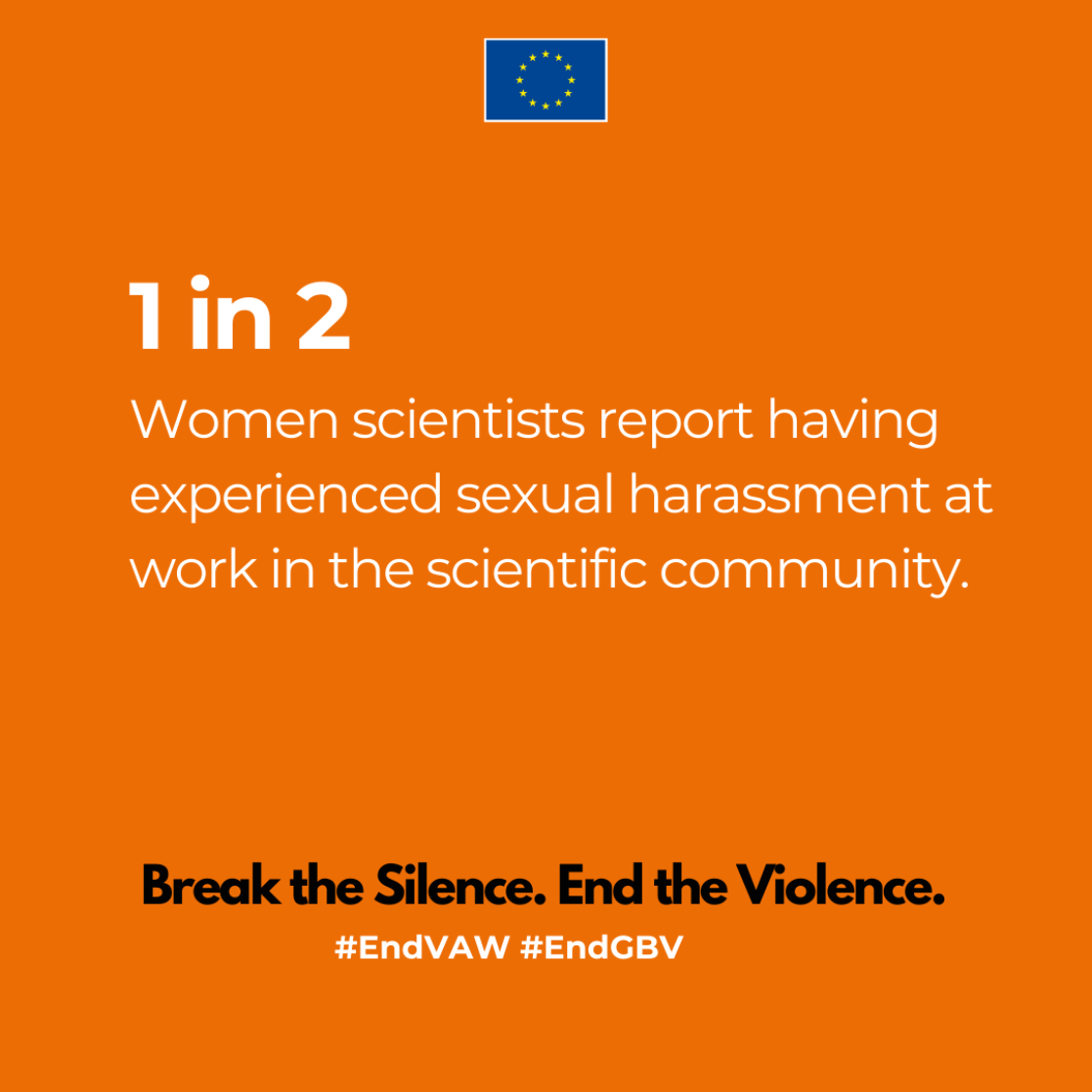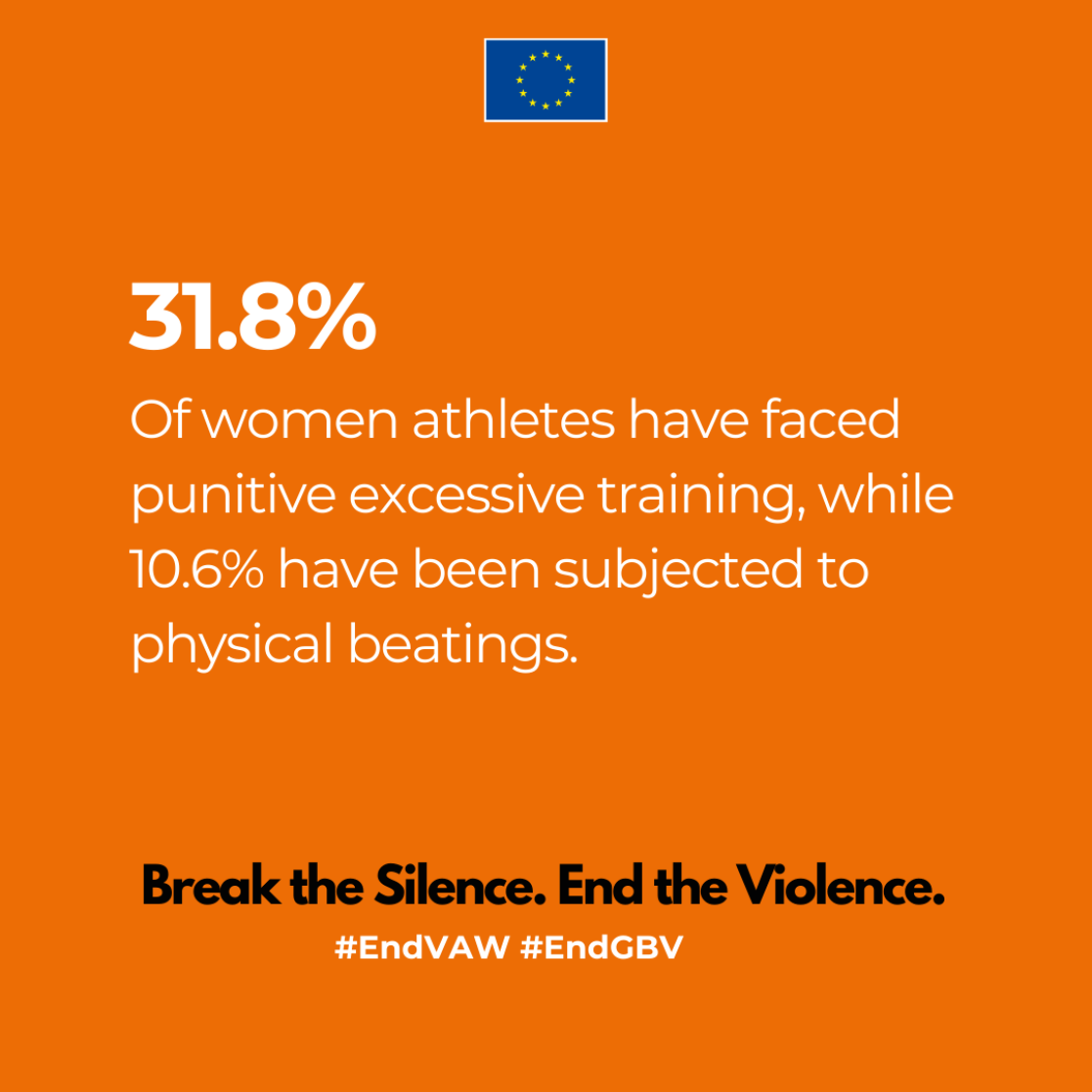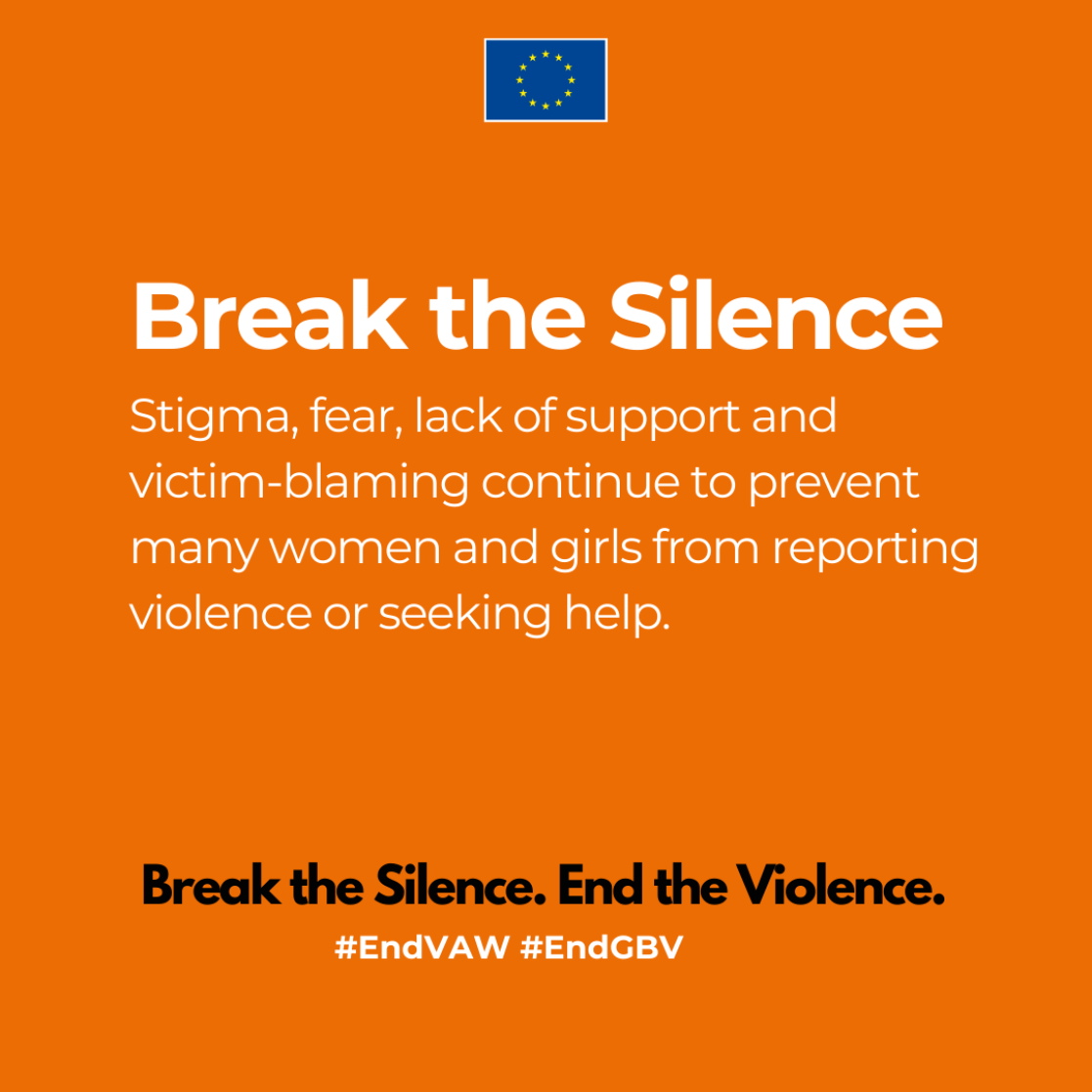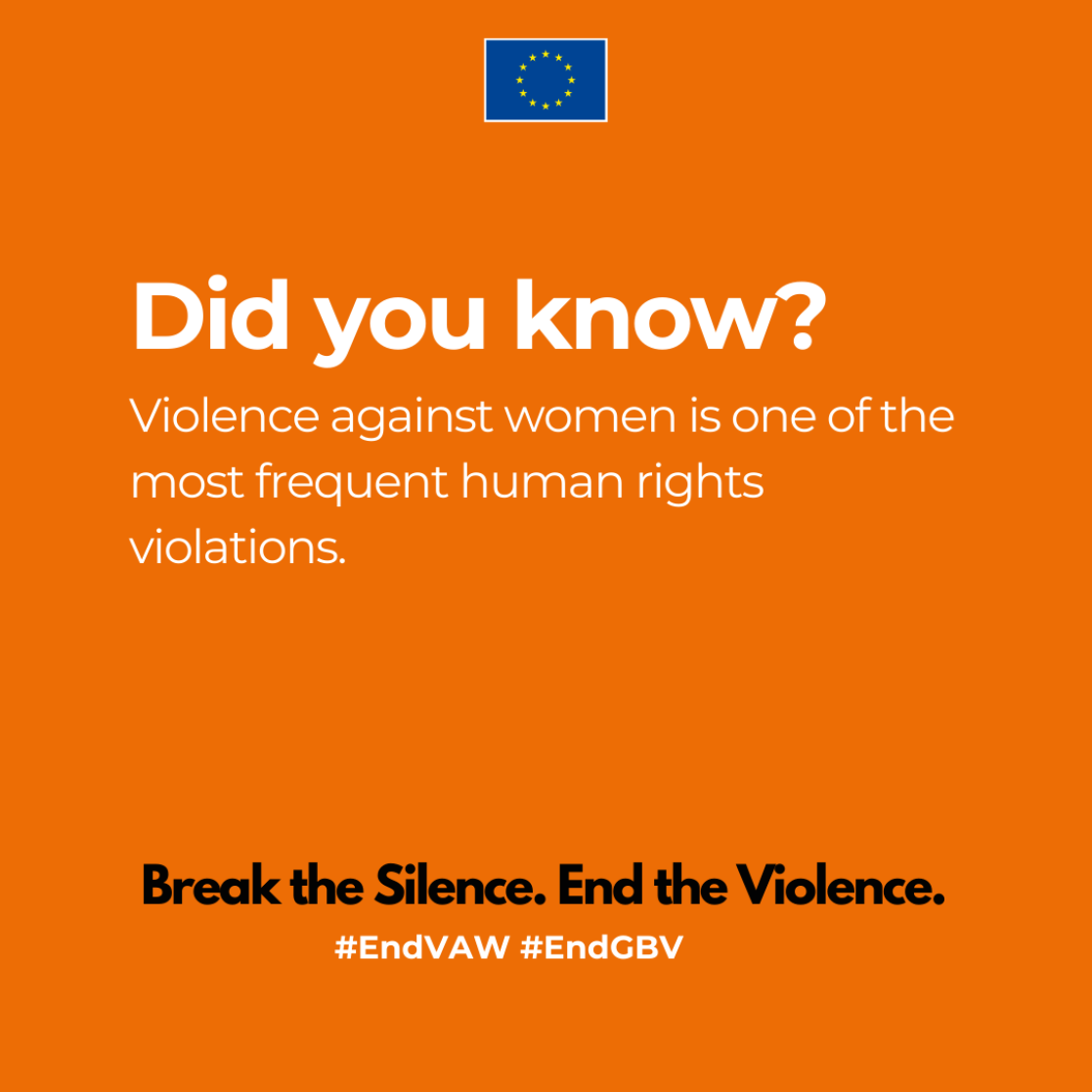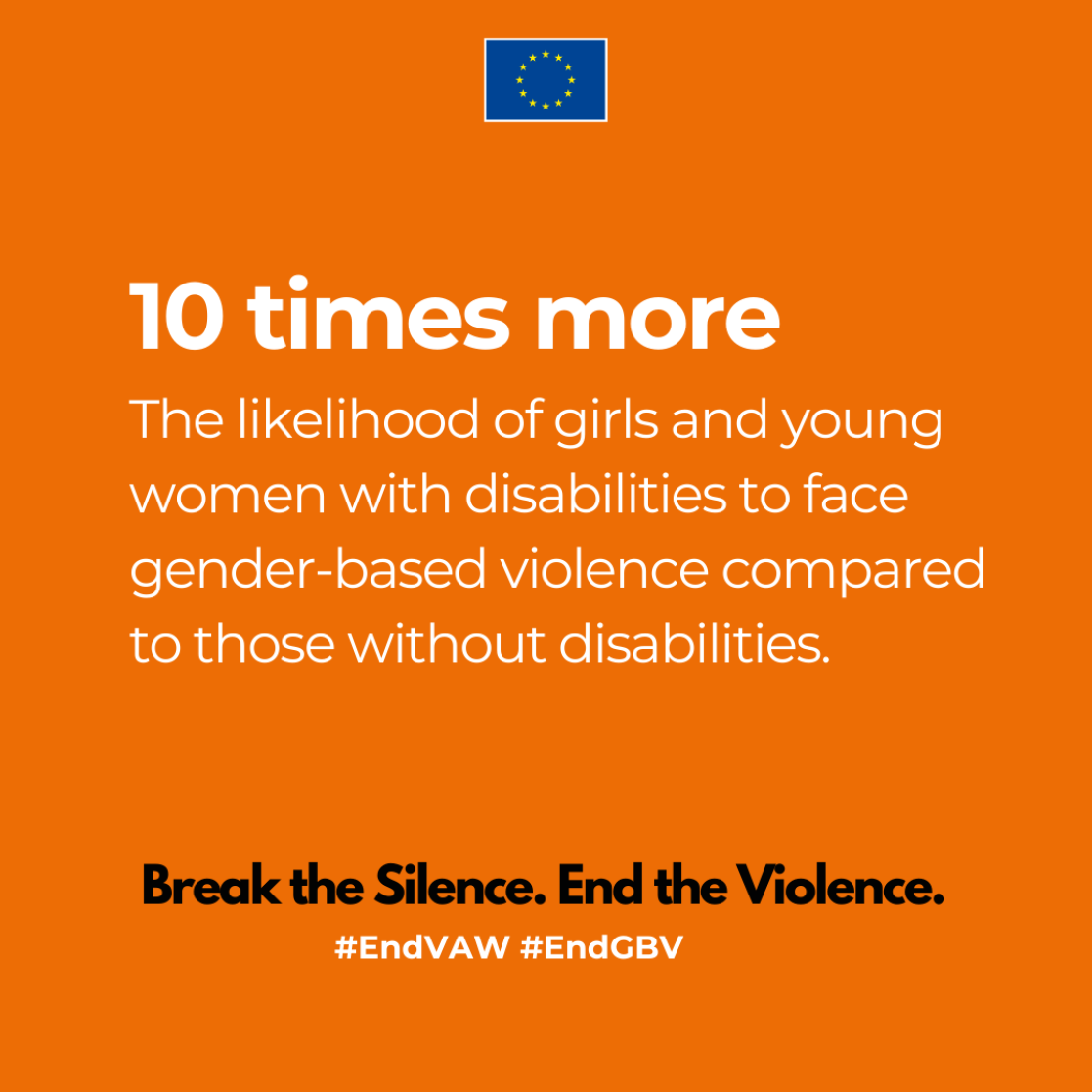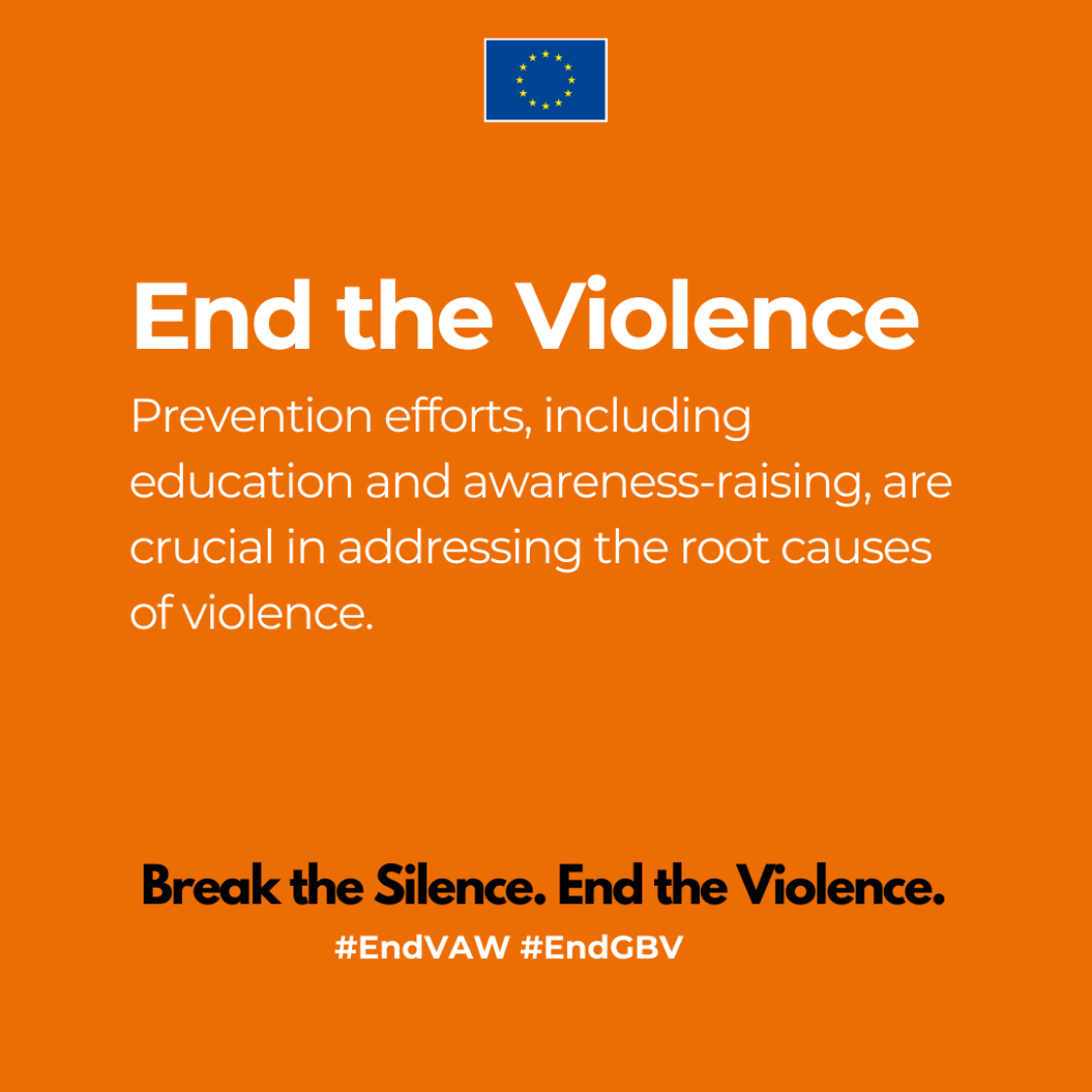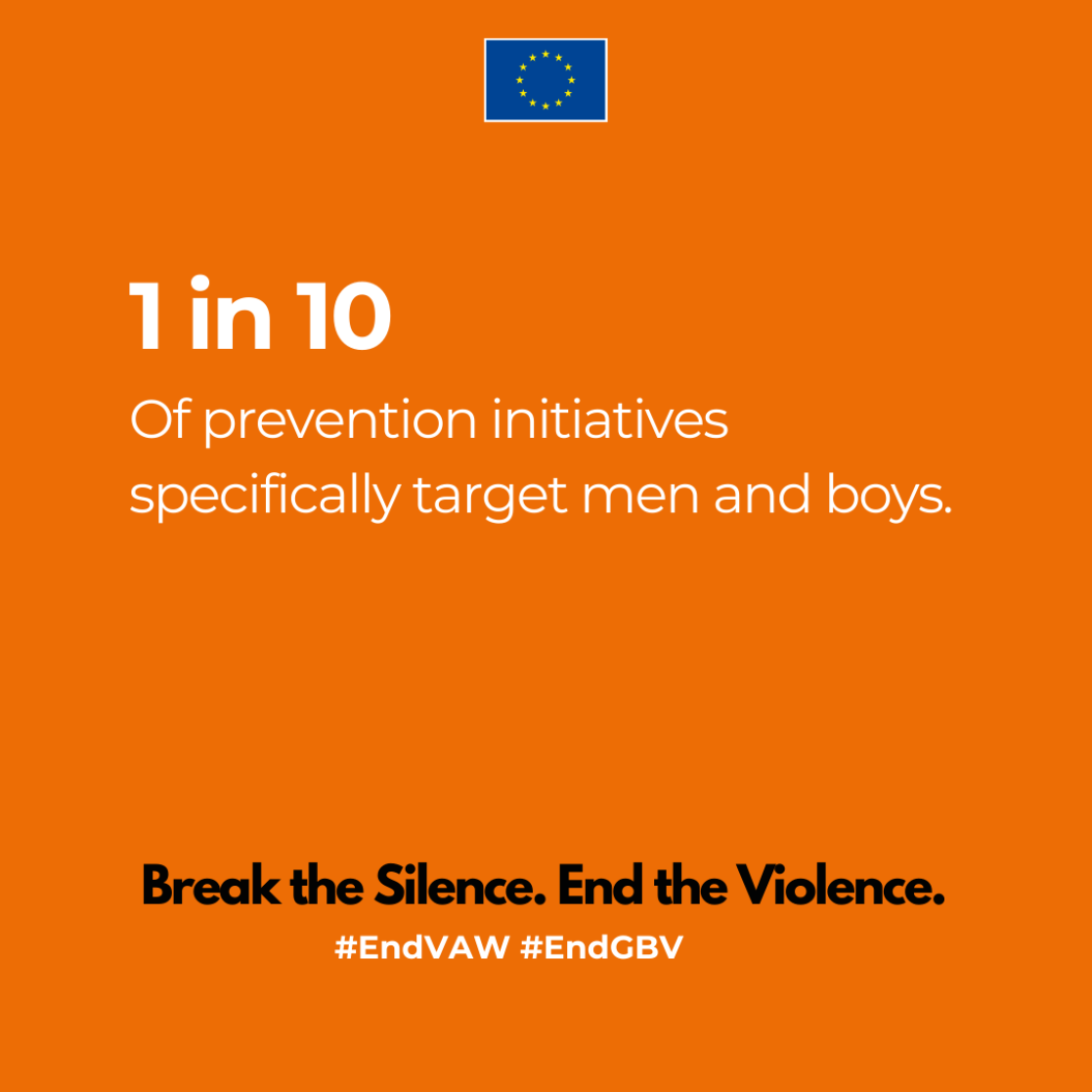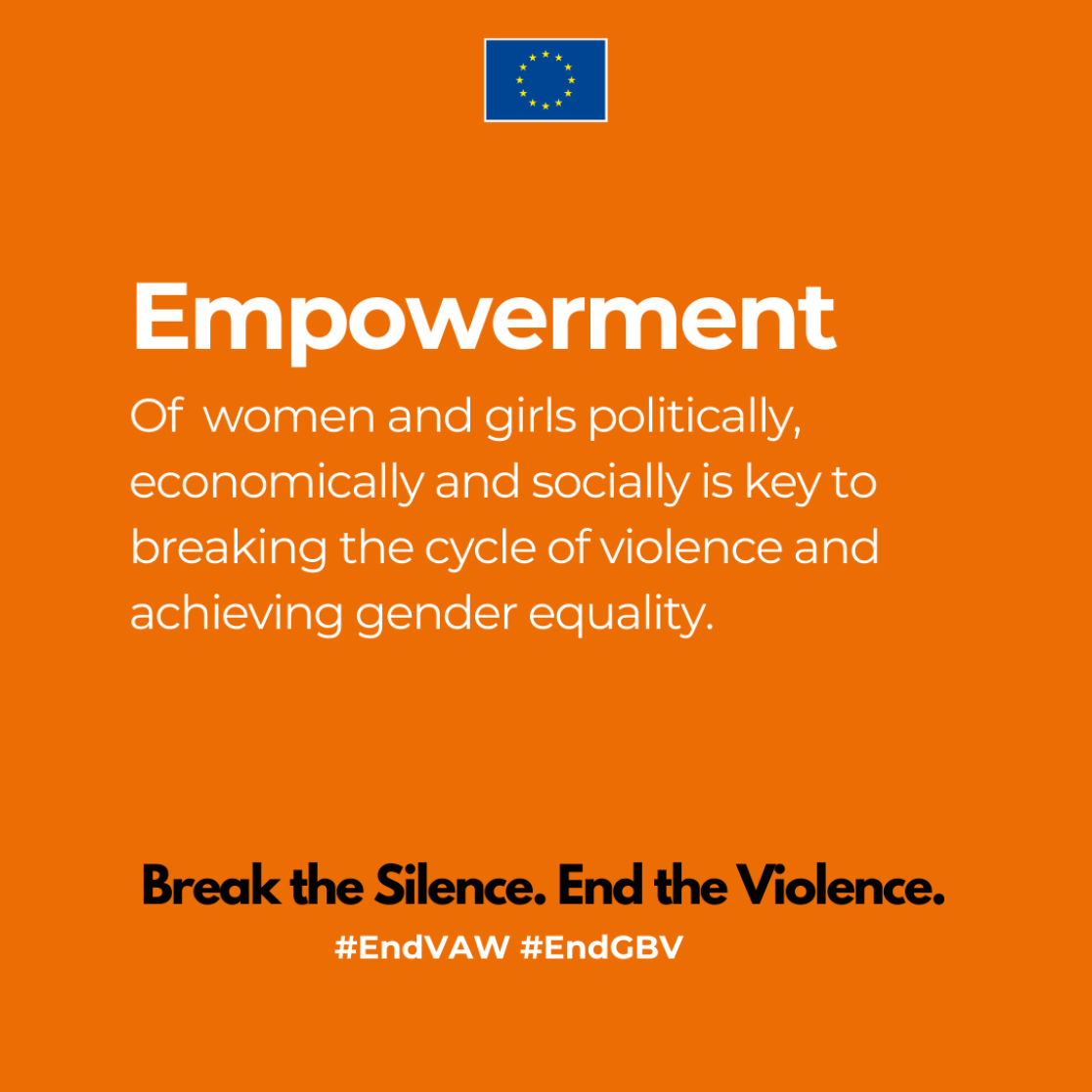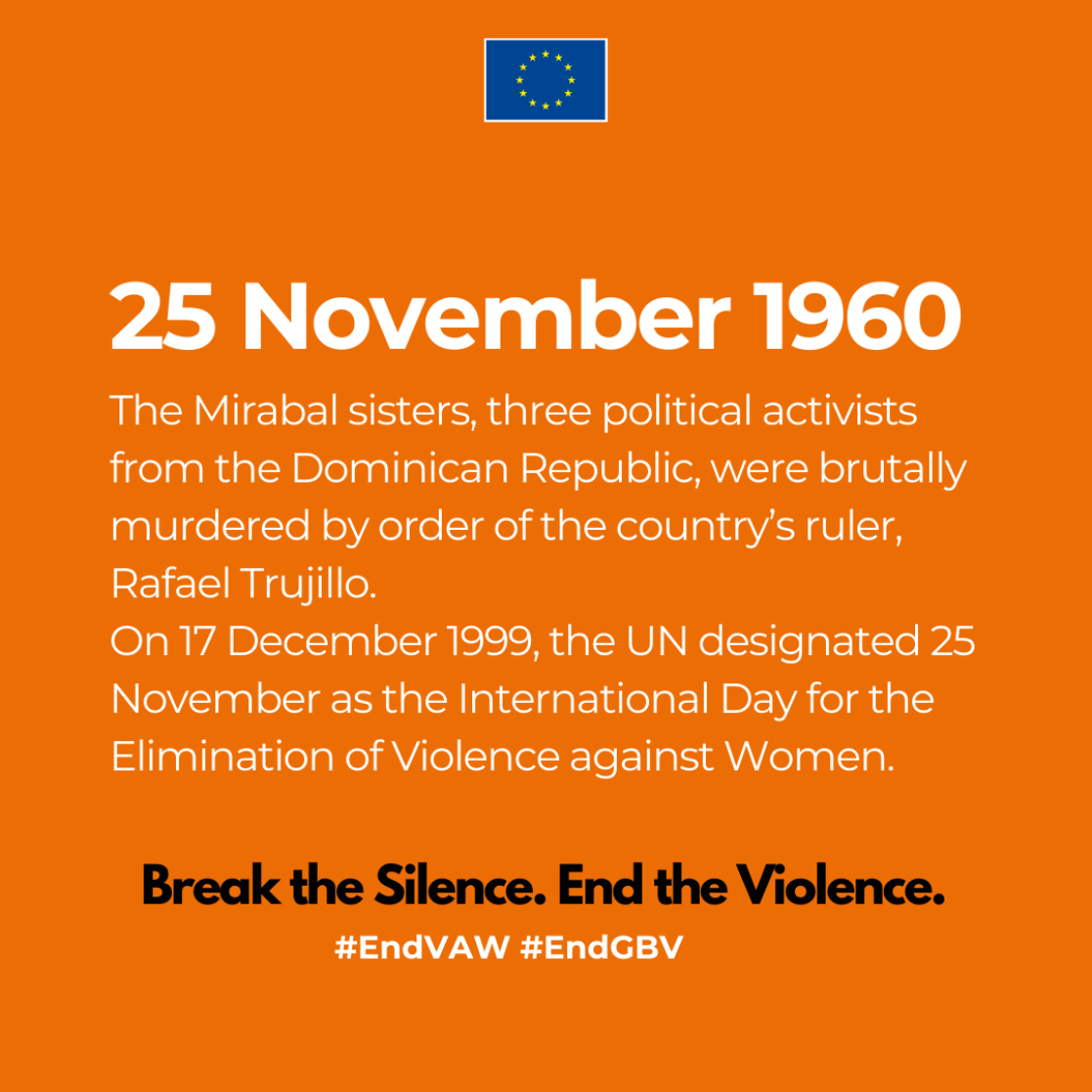Violence against women and girls is a scar on all societies. Fighting it means more than striving for gender equality. It means fulfilling basic human rights.
~ HR/VP Josep Borrell - Statement to protect women and girls from violence (2023)
25 Facts on Violence against Women
In 2024, we mark the 25th anniversary of the UN General Assembly’s designation of November 25 as the International Day for the Elimination of Violence Against Women, in memory of the Mirabal sisters, who were assassinated on this day in 1960. Data is crucial for gaining a deeper understanding of the various aspects, prevalence, severity, and frequency of violence against women and girls. Here are 25 facts linking to (re)sources on gender-based violence. Click on each fact to learn more.
* Data provided as per 25 October 2024. Please note that information may change over time.
Support within the EU and beyond
Violence against women and girls is one of the most systematic and common human rights violations globally. EU countries are no exception. Sadly, one in three women has experienced physical or sexual violence, mostly perpetrated by intimate partners. Eliminating such violence globally requires intensive efforts.
The EU and its Member States work together to prevent and combat violence against women and girls, protect victims and prosecute perpetrators. The EU protects women and children from gender-based and domestic violence through legislation and practical measures. 1 October 2023 marked the entry into force of the Council of Europe Convention on Preventing and Combating Violence against Women and Domestic Violence, making the European Union the 38th Party to the Convention. With the Directive (EU) 2024/1385 of the European Parliament and of the Council of 14 May 2024 on combating violence against women and domestic violence, the European Union now has the first ever law to effectively fight violence against women and domestic violence.
The EU is also working towards the adoption of a common EU helpline number for victims of violence against women which will redirect users to the appropriate service.
Through the 25 facts above, we aim to raise awareness, and break the silence around violence, because it can happen anywhere, anytime, to anyone.
Furthermore, this page provides useful information and links to apps and initiatives aimed to help victims and survivors of violence, and to tackle this global issue, as well as examples of activism and solidarity worldwide.

Sophia is the world’s first chatbot assisting survivors of domestic violence to gather potential evidence and seek help - a tool that can automatically direct people in vulnerable situations to the right place. On 11 May 2023, Chatbot Sophia won the EU Award for Innovation, and on 28 September it won first prize in the general category at the Social Innovation Tournament of the EIB Institute 2023!

Lila help is another trusted platform managed by the Global Network of Women’s Shelters, providing gender-based violence helplines and NGOs for almost every country in the world. Every helpline or organization on this website is safe, will provide a listening ear, understands what victims need, is part of a broader crisis-help network, and can answer your questions or call for help.

Gender-based violence programming has shifted to meet the needs of vulnerable, urban or roving displaced populations. The Remote-Offered Skill Building App (Rosa) provides key content on gender-based violence knowledge, case management, communication and attitude skills; offers self or supervisor-administered skills assessments; and a community space for users to expand their learning through facilitated remote discussions and distance supervision.

Introducing Comeback CatZ – the app empowering you to speak up against sexism with confidence and humour. Say goodbye to the days of staying silent or feeling helpless when faced with offensive comments. Join the waiting list now and be part of the movement towards ending sexism with humour, confidence, and community.

Spotlight Initiative Learning Centre is an online resource platform for individuals and organisations designing, implementing and managing programmes to end violence against women and girls. It builds on experience and learning from Spotlight Initiative and wider evidence and practice in the field. Also, Spotlight Initiative has partnered with The Social Good Club to invite content creators to help build a world that is safe for women and girls - online and offline. Download the culture change starter kit.

SHINE is a hub where you can connect with fellow feminists and women’s rights activists around the world, share knowledge and create movements together to end violence against women and girls. 50+ languages, thousands of users already online and connecting, and many resources, guidance, tools that you can use for your own community. Join the conversations today!

UN Women's Global Database on Violence against Women is a one-stop source on the measures governments across the globe are taking to build a world free from violence against women and girls. The database allows the user to search by: type of measure; form of violence; year; region and country.

The UN Refugee Agency (UNHCR) provides Information for Refugees, Asylum-seekers and Stateless People, including information on Sexual Exploitation and Abuse and links to organizations who can provide assistance for survivors of torture and gender-based violence. Choose the country you are in or of interest to find helpful services and information on asylum procedures or read more about your rights and duties.
Tell Someone You Trust
This video offers children aged 9-13 the possibility to understand through one girl’s story, what sexual violence is and how children can be protected from it.
ACT
The ACT (Advocacy, Coalition Building and Transformative Feminist Action) programme officially launched on 25 September 2024, is a collaborative initiative between the EU and UN Women to address the persistent and evolving nature of violence against women and girls, which has been intensified by global crises and the misuse of digital technologies.
ACT is committed to eliminating all forms of violence through enhanced global and regional advocacy, coalition-building, and advancing transformative feminist actions.
The ACT programme will work in close coordination with the Spotlight Initiative.

UN Women/Bruno Spada
Identity-Based Disinformation/FIMI - OSINT guidelines
Identity-based disinformation (IBD)-focused FIMI campaigns target vulnerable groups such as racial or ethnic minorities, LGBTIQ+ individuals, amplifying existing prejudices against them.
Similarly, gendered disinformation campaigns targeting explicitly women and girls because of their gender, are a tool used to enforce silence and reinforce violence.
In order to detect and identify IBD, Open Source tools and methodologies give us the ability to carry in depth investigations by aggregating analysed data from diverse, publicly available sources. The resulting information, known as Open Source Intelligence (OSINT), is an indispensable tool in detecting and countering FIMI and obtaining more detail about these types of issue-specific attacks.
The EEAS has developed a guide, “How to Detect and Analyse Identity-Based Disinformation/FIMI: A Practical Guide to Conduct Open Source Investigations”, to enable analysts, victims and civil society organisations to carry these type of open source investigations (OSINT) and, ultimately, mitigate the impact of IBD-focused FIMI threats on democratic integrity.
This guide serves two goals: First, it enhances the OSINT community’s capacity to recognise and investigate identity-based aspects of disinformation. Second, it provides victims of identity-based FIMI with tools to detect and document those heinous attacks. The guidelines were launched during a conference held in Brussels on 14 November 2024. Watch it here.
Addressing Gender-based violence in sport
Tackling violence against women and girls in sport: a handbook for policy makers and sports practitioners
Violence against women and girls continues to be one of the most pervasive human rights challenges in the world, with one in three women being a victim of violence. In sports, women and girls are faced with particular risks, combined with ineffective or inexistant prevention and response mechanisms.Yet, sport holds enormous potential to drive gender equality by improving the well-being of girls and women, and boosting their confidence and leadership skills. This handbook aims to create a shared understanding of the problem and support the development of effective policies to tackle violence against women and girls in sport.
Factsheet on gender-based violence in sport
Despite the fact that sport promotes ethical values, fair-play and integrity, violence also occurs in the sport context. In some cases, violence is directed against a person because of her/his gender (including gender identity or expression). This phenomenon is understood as gender-based violence and may include sexual harassment and abuse, rape, physical or emotional-psychological violence, and LGBTQI-violence. These forms of gender-based violence are not mutually exclusive; they actually overlap.
EU Sanctions to end Sexual and Gender-based Violence
The Council adopts restrictive measures against Sexual and Gender-based Violence. With such sanctions, the EU sends a clear message: there is a cost to serious human rights violations and abuses.


